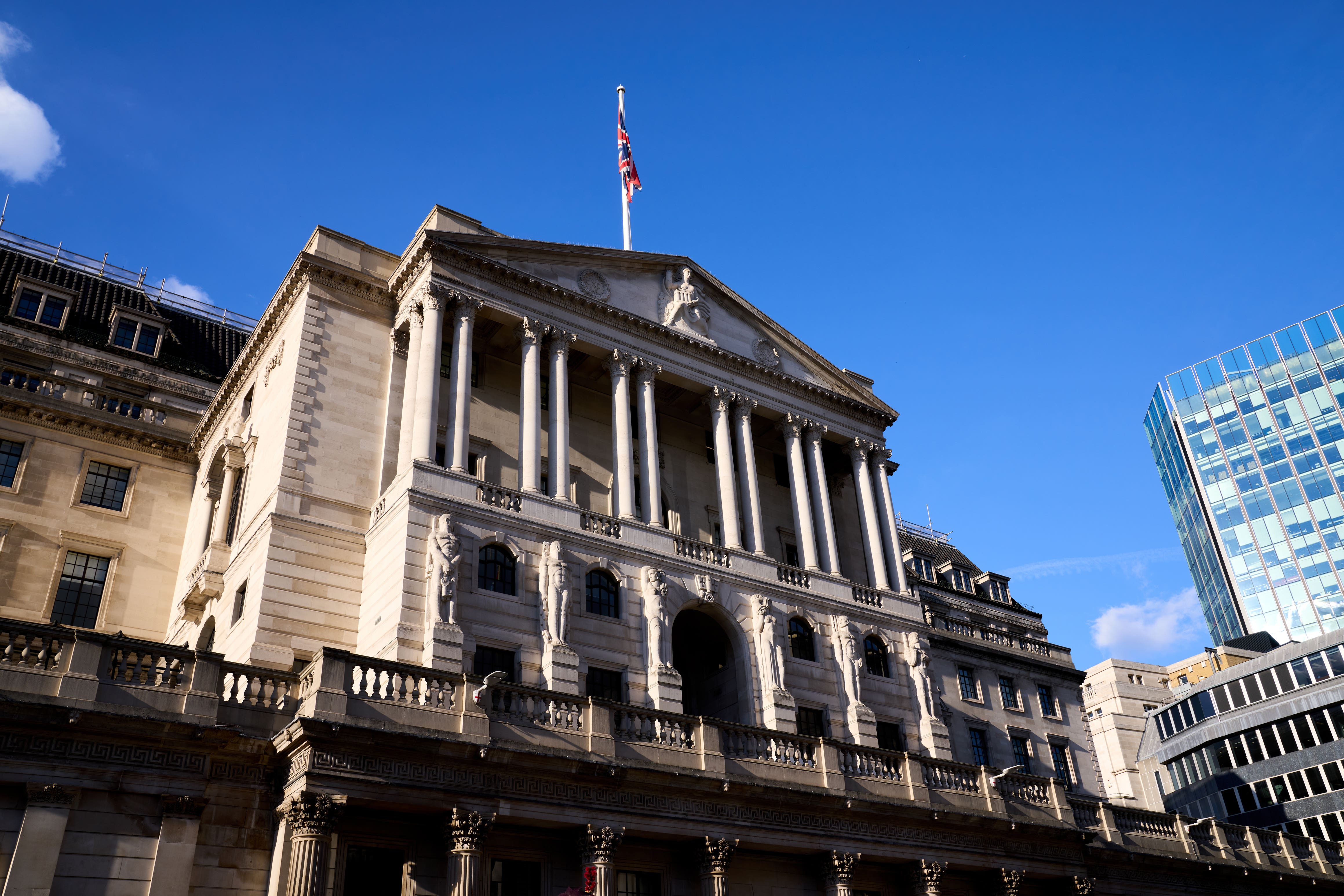Bank of England rate cut expected despite ‘fiscal loosening’ of Budget
A quarter-point cut is forecast on Thursday, but Labour’s Budget has trimmed hopes of a rapid string of rate cuts afterwards.

Your support helps us to tell the story
From reproductive rights to climate change to Big Tech, The Independent is on the ground when the story is developing. Whether it's investigating the financials of Elon Musk's pro-Trump PAC or producing our latest documentary, 'The A Word', which shines a light on the American women fighting for reproductive rights, we know how important it is to parse out the facts from the messaging.
At such a critical moment in US history, we need reporters on the ground. Your donation allows us to keep sending journalists to speak to both sides of the story.
The Independent is trusted by Americans across the entire political spectrum. And unlike many other quality news outlets, we choose not to lock Americans out of our reporting and analysis with paywalls. We believe quality journalism should be available to everyone, paid for by those who can afford it.
Your support makes all the difference.The Bank of England is expected to cut interest rates next week, despite forecasts that Labour’s autumn Budget could lead to higher inflation over the coming year.
Policymakers will announce the result of their November meeting on Thursday, where most analysts think they will trim the base rate by a quarter-point to 4.75%.
Last month, official figures showed that the headline rate of inflation dipped to 1.7%, its lowest level since April 2021, while services sector inflation also fell, boosting hopes that rate-setters will vote to cut.
The base rate, which helps to dictate mortgage rates and borrowing costs, currently sits at 5%, after it was hiked in recent years to bring inflation down to the Bank’s 2% target.
Meanwhile, the most recent figures for wage growth show it also slowed to its lowest level in two years, with average regular earnings growth easing back to 4.9% in the three months to July.
Thomas Pugh, an economist at the consultancy RSM, said the two factors mean a rate cut is “nailed on”.
The Monetary Policy Committee meets in the week after Chancellor Rachel Reeves announced almost £70 billion of extra annual spending, funded by business-focused tax hikes and additional borrowing.
The Office for Budget Responsibility (OBR) said the sharp increase in spending will contribute to higher inflation, although it will also help drive stronger economic growth.
Inflation is forecast to average 2.5% this year and 2.6% next year before coming down, assuming “the Bank of England responds” to help bring it to the target rate, the OBR said.
It has prompted economists to reel in predictions for a rapid succession of rate cuts over the next year.
Mr Pugh added that after the fiscal loosening in the Budget, rates are “likely to fall more slowly over the course of the next year. Indeed, a sequential rate cut in December now looks unlikely.”
Markets were pricing fewer than four quarter-point cuts from the Bank up to the end of next year, down from a little under five before the Budget.
Matt Swannell, chief economic adviser to the EY Item Club, said he does not think the Budget will “prevent future interest rate cuts”.
He said: “At its November meeting, the MPC will probably continue to indicate that it is more confident inflation persistence is easing, but that Bank Rate will have to remain restrictive for some time and that future rate cuts will likely be gradual.”